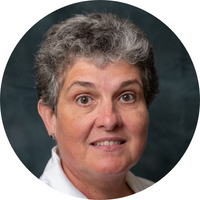
You have worked in both academia and industry. Can you share something academics might not adequately appreciate about the challenges confronting people who work in in industry, and vice-versa?
There are two major challenges moving from academia to industry, one is the time scales of getting work done, and the other is the emphases on process and safety. As a graduate student, your project timelines were controlled by the research, your personal academic timeline, and your advisor’s grant schedules. These timelines are more fluid than what I encountered moving into industry, even in a group that was focused on fundamental research. Industry is very results-oriented and deadline-driven. The timescales are shorter and with more checks along the way. There are weekly, monthly and quarterly progress reports that have to be prepared. These are more formal and the consequences for delays much greater. Additionally, there were more structured processes for safety, management of chemicals and equipment, documentation practices, purchasing practices, and even reporting requirements.
As my career has spanned 30 years, and I have moved between academe and industry as a sponsor of academic research and now back into teaching. I still see these two areas as fundamentally different between industry and academe. As regulations have increased in the areas of environmental, safety, drug discovery, etc., industry has to be very process focused on ensuring compliance with the various standards and regulations that may apply. Research protocols go through many types of reviews. Industrial plants follow strict management of change and documentation is paramount. While these are important at research and teaching institutions as well, and there are processes and protocols in place, there still seems to be an overall difference. Some of the differences may relate to the stages of research and production, but it always seems to be eye-opening when the two groups come together.
There is also a difference in how information is handled. In academe, there is a push for output and getting the information into the collective scientific knowledge base that includes journals and publications. In industry, there is more control and restrictions due to intellectual property considerations, i.e. what is being licensed by whom, what has the potential to be capitalized upon, etc. While these are drivers in academe as well, the openness and exchange of information are different. The processes that are followed are different, and the timeline between discovery and publication are different. Even something as simple as sharing a file can have huge implications from a security point of view to a potential intellectual property concern in industry. Thus there is a much higher level of sensitivity.
Why do you believe that timely access to quality mentors is so crucial to career success for young science and engineering professionals? How does a young scientist find an effective mentor?
Mentors are critical at all stages of a person’s career, and a person needs to have more than one. In some cases, there may be individuals that you will work with throughout your life, and here I am very lucky as I am in contact with many of my mentors. There are times that you will have mentors for specific projects or time periods or career phases, and they will provide key support at just the right moment. Both types are critical in the development of your career.
The question becomes a bit trickier when you are asking about career success because sometimes success means that a change or a move needs to be made that may not initially be viewed as positive. For example, a mentor may help you identify that a particular career path is not the right one for you at a particular point in your life or help you to identify an unhealthy work environment. Initially, these may not be seen as successes, but looking back over a long career may have been exactly what was needed.
What is critical to everyone’s career is finding those individuals that are willing to engage with you to provide prospective. Mentoring is a two-way street. The mentee needs to be aware and open to a potential mentor when the opportunity presents itself. For example, at a social gathering, you may encounter an individual that is willing to talk and share a story. This may be an opening for further discussion, or a potential opportunity to get involved. This happened to me, which allowed me to become involved in the ACS. The other aspect is personal initiative. You have to be willing to take that step, and ask the question or ask for time to have a meaningful discussion.
One other aspect about mentoring, it isn’t always about a person’s age. It is about experience. Even now, I seek out mentors when I am attempting to learn a new skill or need information about a particular area. I find myself working with individuals of all ages, as technology is changing rapidly and I am seeking out those who can best help.
Apart from finding an effective mentor, what else is critical for young scientists to focus on as they start their careers?
Two things I believe essential to everyone’s career is to keep learning and to be open to new ideas and opportunities. The second one is a corollary to the first because if you are open to new ideas and opportunities, you are bound to continue to learn. You also have to expand your vision beyond your usual field of vision. Many of the best ideas are transferred from one disciple to another or are envisioned as fantasy. Look at the writing of Jules Verne or Michael Crichton. Many of the ideas that were once in the imagination or a logical leap of thought have come to pass. I have found that many books written for small children contain very profound business wisdom. The trick is to open your mind to other possibilities.
I was surprised to learn that you were a Ph.D. physicist. What led you to affiliate so profoundly with the American Chemical Society, where you have volunteered thousands of hours of your time over the years?
Fundamentally, it is because of the openness of the individuals I have encountered in the American Chemical Society. My research has always been in the margins between chemistry and physics. As an undergraduate, I was working with the physical mechanisms of the evolution of hydrogen in an electrolytic cell, with the ultimate goal of furthering a solar-hydrogen economy. As a graduate student, I was looking at inter-particle forces of particles on a micro- to nano-scales. The processes being investigated were being examined more from the fundamental physical point of view hence coming at them from the physics side. Thus, in order to pursue my research, I had to interact with both groups.
As my career progressed, I continued to fine more opportunities to communicate science to those around me, in my company, my community, and students, which has always been a passion. It was the American Chemical Society that provided me with those outlets. (It may have also had something to do with the fact that I worked in a company populated by chemists and chemical engineers.) Chemistry is broad, and our Society is filled with non-traditional individuals that pursue the same goals. We have attorneys, material scientists, engineers, teachers, process technicians, etc. Our training may not have that traditional chemistry degree, but we are all working towards that mission statement – to improve the world through the transforming power of chemistry.
How did your parents influence your leadership style?
My leadership style has been definitely influenced by both my family and life experience. My grandfather had a critical role in my life and my mother’s. He always encouraged his girls to pursue their dreams. He was an electrical engineer for Idaho Power and was one of the first that encouraged and supported women in the company. It came from his grandmother, who was elected to the Idaho State House of Representatives, so for him, women were very capable individuals and should be encouraged. He was a change agent, but change had to come from within the organization. My mother married another change agent, i.e. the past doesn’t have to foretell the future. My father went to college and joined the military. So, I grew up moving around a lot. My father was killed in Vietnam, and my mother remarried. My stepfather was in the Army, and we continued to move around and lived in Panama from ’76 to ’80, a very interesting time in U.S. history.
It is my view that leadership is cultivated. You learn from other leaders, examples, and experience. I think it is important that you get involved and are willing to put your beliefs into practice.
Your life’s resume reveals a person with an extraordinarily varied set of interests and work experiences. You have a Ph.D. and an M.B.A. You have worked in industry, in academia, and as an entrepreneur. You regularly contribute to a journal, to a local newspaper, in addition to writing your own publications. You have led an ACS committee, two ACS Local Sections, and an ACS Division. You have also volunteered for a Mozart music festival, the Boy Scouts, and the Pony Club [an organization dealing with horsemanship]. What is the tie that binds all of these?
This is an interesting question, and at first, I didn’t know how to respond. But, then my husband pointed out that I may have answered this question already. Not only did my grandfather play a role in this, my grandmother and great grandmother (whom I am named after) also did. Their view was that you have to be a contributing member of society. Hence, we need to give back. We are part of the community as a whole, and if you don’t volunteer and work to make things better and provide for opportunities for others, who will? Volunteerism has been a part of my life from the beginning, and my children will tell you it has been part of theirs as well. It is even spreading to the next generation, as my grandsons are always helping with church and community activities.
When you worked at Phillips Petroleum, did they offer an employee discount on the purchase of their gasoline?
It is funny; I always get asked a question like this. Nope, never got a discount.
What unique challenges do women chemists encounter in industry? What can the women - and the companies that employ them - do to mitigate these challenges?
If you had asked me this question at the beginning of my career, my answer would be very different. The nature and scope of the challenges have changed considerably over the past 30 years. And, we now recognize that there are challenges for several different groups. Diversity is important for the overall health of an organization. So, it is extremely important to be aware of the institutional and personal biases that we all have. Which means not only do individuals have to overcome a particular challenge in their organizations, they have to be aware of how their personal decisions many ultimately impact the outcomes.
Let’s look at a particular personal example. When I was initially hired, I came in at the same pay scale as my male counterparts. But, over time, the pay gap and opportunity gap became present. Why? Several might point to the institutional bias, but I also am aware there were actions on my part that helped lead to this gap. There were times in my career that I took a transfer without a promotion or raise. It was my decision not to argue or negotiate for the promotion or pay. Many of my male counterparts did. Thus, an initial gap started to form. Do this over a period of years, and the gaps increase. What didn’t seem to be a big issue initially, compounds over time. So, it is sort of analogous to the frog in the pot, you don’t notice it at first, but you ultimately find yourself in a pot of boiling water.
There were also times when there were not so subtle implications. Meetings where you were not recognized as a professional in the room, or openly dismissed. Things are changing, but bias is still present. There are still different standards, attire, attitudes, etc. We need to be aware of them, and we need to be conscious of our actions, and we react and support others. It isn’t just women, either. It is the single parent, or the person from another part of the country, or the person from another country, or a person with a disability, etc. It is going to take us all to create the change that needs to occur.
It’s 2040. What is providing humanity with its greatest challenge? Access to food? Water? Energy? Clean air? Something else?
My immediate answer is water. Water is essential for life. You won’t be able to have food, energy, clean air, or any of the technologies that we have come to depend upon unless there is access to water. The key issues surrounding water are ultimately who has it and who doesn’t and is its purity right for the application. Water, its management, its availability, and ultimately who has control or responsibility is a key issue now and will become even more important.
What do you think about a culture that makes heroes of actors, recording artists, and athletes but has little love for scientists who develop medicines to keep us healthy, innovative solutions to keep us fed, new energy sources to transport us, advanced materials to keep us comfortable, and new approaches to improve the environment?
Not sure how anyone will address can this. It has been a staple of western civilization. The Greeks had their Olympians, the Romans their Gladiators. Mozart was a “rock star” of his age. But, I can also point to Jonas Salk, Linus Pauling, and Albert Einstein as recognizable icons. It is a societal challenge, and I am not sure one that we are going to be able to change. Might be an interesting topic for a book, though.
ACS recently awarded you the 2019 Helen M. Free Award for Public Outreach. Congratulations! Now, why do you think it matters whether the public recognizes and appreciates the field of chemistry, along with its practitioners?
Your last two questions lead to why. Without a basic scientific understanding, how is it going to be possible to address the challenges that we are facing today and tomorrow? Science is going to provide the technologies that will help us meet the needs of a growing population and keep us healthy. We are going to need a good understanding of the implications of our decisions. For example, if we implement a particular technology to reduce air pollution, will it deplete a particular resource because it requires a particular metal for its catalyst or will require vast amounts of water? Because of public perception, are we creating an unknown problem, as in the discussion of paper versus plastic bags? We went to plastic because paper was seen as harmful to the environment, and now?
I recently saw a post on social media, as a response to a young person who confronted an older person about “what they did.” In this discussion, the older person talked about using public transportation that is no longer available, or recycling milk bottles instead of using plastic jugs, or living in walkable communities. Things change. But without science, and the communication of scientific principles, we end up with misinformation, which leads to potentially dangerous outcomes. Just, look at the news, misinformation about the efficacy of vaccines, and we have a measles outbreak; not thinking through all the implications of a change in water systems and we have an environmental disaster; and not knowing exactly what goes into making a touch screen may lead to poor conservation choices.
I believe that is part of our responsibility to be part of the conversation. We are part of our community, and ultimately it is part of our responsibility to communicate both the positives and potential negatives so that we can make a good decision. There is a legal standard that is utilized in many cases, particularly as it faces corporations, that is the company and its executives “should have known.” Why, because they had access to the information to make a good decision. We are in a position where that standard may need to be applied, and it is our responsibility to communicate so that others have the information.
Would you rather be hanging out with a good horse, a good dog, or a good cat?
While I love horses, and horses mean a great deal to me as they have been great life instructors, today is a dog. We recently brought into the family our third Dalmatian, AgNOOO, as our two older dogs are getting up in years. Nitrate d’Argent, DART, a Dal, is 12 and Scout, a Golden Retriever/Border Collie Mix, is 10. We have always had great luck bringing in a younger dog while the older dogs can help train and socialize. AgNOOO is a Dal and is six months old, so we are spending a lot of quality time together, because as our breeder reminded us a tired puppy is a good puppy.

Dr. Wood-Black has been in the petroleum and chemical industry for over 25 years with work experience in technical management; laboratory operations; environmental science and compliance; finance; and professional development. Dr. Wood-Black’s work experience has primarily has focused on refining and downstream operations. Prior to joining Northern Oklahoma College and starting Sophic Pursuits, she was employed with Trihydro Corporation, a full service environmental consulting firm; and was employed by ConocoPhillips before entering consulting.
In addition to her refining and chemical plant experience, she has worked on a number of remediation projects focusing on site reuse, environmental compliance associated with chemical management, air emissions, and emergency preparedness. Due to her research background, she has a fundamental understanding of monitoring techniques as well as technological solutions to specific issues in the field.
This article has been edited for length and clarity. The opinions expressed in this article are the author's own and do not necessarily reflect the view of their employer or the American Chemical Society.
Copyright 2019 American Chemical Society (All Rights Reserved)







